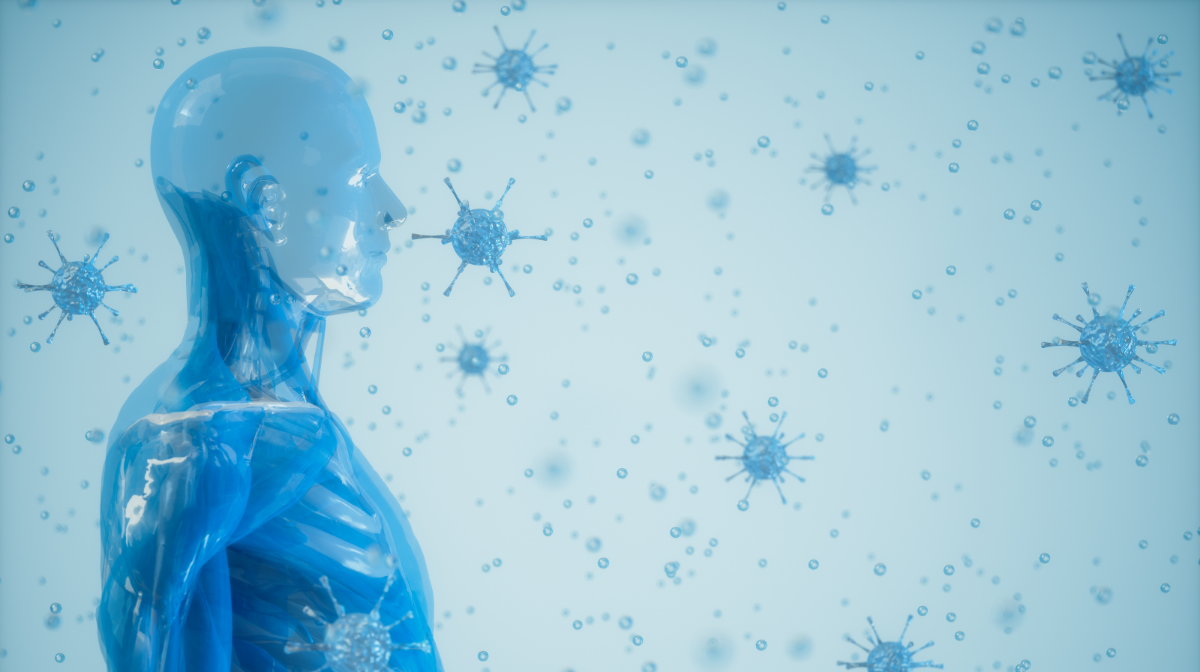Nutrition and immunology in relation to the gut microbiome – prebiotics and probiotics
The following blog is a summary of key learning points from a talk given at Digestive Health and Wellbeing: The Patient Journey in 2021. This blog discusses the complex interplay between nutrition, immunity, and the gut microbiome.
Meet the speaker
Dr Caroline Childs RNutr is a Lecturer in Nutritional Sciences at the University of Southampton. Her research investigates the connection between nutrition and the immune system, and her studies to date have included the effects of nutrients such as dietary fatty acids, probiotics and prebiotics. In addition, Dr Childs is Associate Editor on the Editorial Board of Nutritional Immunology, Associate Editor of Frontiers in Immunology and Nutrition, and an Editorial Board member of Nutrition Bulletin.
The interaction between nutrition, the gut microbiome and immune function
Immunity is top of the healthcare agenda, with a recent surge in interest driven by the global Covid-19 pandemic. Increasing evidence points towards the gut microbiome as an important area of focus when looking to support the body’s natural lines of defence. The talk delivered by Dr Childs gives a strong overview of what makes the immune system so important to physical health, and where prebiotics and probiotics may fit in as future health interventions.
Summary points
The immune system is highly complex, with a number of organs, specialised tissues, resident cells and mobile cells all playing a role in our short- and long-term defences. Most of the immune cells in the body are found within gut-associated lymphoid tissue, which makes up around 70% of the body’s immune cells. In health, our immune system provides us with protection against bacteria, viral and fungal infections, and is key in the body’s normal physiological responses to injury and trauma.
The importance of immunity
The immune system has a vital role to play in maintaining health, but there is also a careful balancing act required to maintain homeostasis. The immune system needs a strong and protective response to infections by pathogenic bacteria but must be extremely selective to ensure it can tolerate normal exposures, such as food proteins. Disorders of immune function can result in health conditions, commonly seen in the form of an allergy or inflammatory disease. There is a wide range of demographic and lifestyle factors that can affect how our immune system functions, such as age, gender, previous exposure to infections or whether we smoke.
As we age, our immune function declines. This decline is associated with impaired vaccination responses and an increased risk of adverse outcomes following infection or injury. This is seen often in primary healthcare; in an elderly individual, illness and disease can be much more difficult to recover from as a result of less efficient immune response. Nutrition can also heavily influence immune health; diet is one of many factors which affect our immune system. The food we eat provides the energy and building blocks required by our immune cells to function correctly.
A dietary approach
Increasingly, we look to the gut microbiome to support better immune health. Probiotics and prebiotics are functional foods which can affect the types of bacteria within the gut. Probiotics add more beneficial bacteria to the gut, while prebiotics nourish the ‘good’ gut bacteria that are already present, encouraging them to increase in number. Changes to the type of bacteria in our gut can influence the activity and function of the gut associated lymphoid tissue. There is a strong body of evidence that functional foods such as probiotics and prebiotics have a role in immune function beyond the gut.
Research conducted by Dr Childs investigates the potential of dietary prebiotics in exerting microbiome independent effects upon immune cells. These direct interactions between dietary components and immune cells could yield important therapeutic benefits to those with inflammatory bowel disease, obesity or non-alcoholic fatty liver disease. In addition, the global Covid-19 pandemic has brought a focus to modifiable factors which could be used to support optimal immune function, and the roles of diet and the gut microbiome are likely to be a crucial mediator of health and immunity as we look further into the future.

